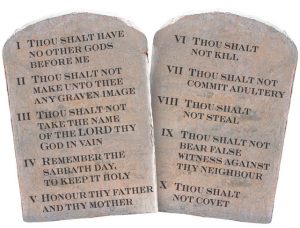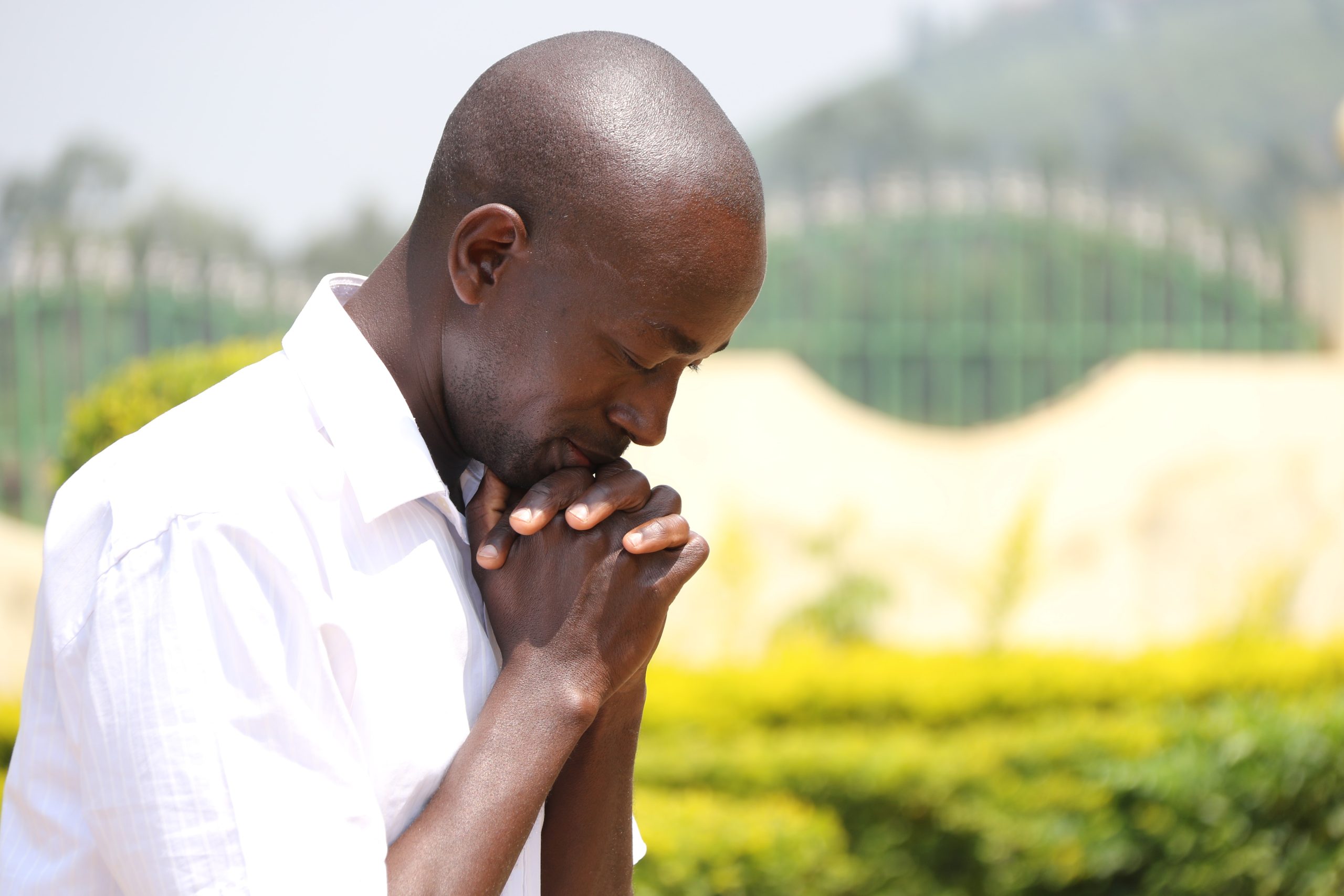One of the all time classics goes like this.
 A fellow was out hiking some Arizona mountain trails all by himself. He reached the top of a mesa, walked over to the other side, then slipped and fell over the edge.
A fellow was out hiking some Arizona mountain trails all by himself. He reached the top of a mesa, walked over to the other side, then slipped and fell over the edge.
Fortunately for him there was a scrub ironwood tree growing out of the otherwise sheer side, and he was able to grab it!
Unfortunately the tree was about ten feet down, so he couldn’t use it to reach the top. His only hope was for another hiker to come along.
So he yelled for help. “Can anybody up there help me?” No answer.
But he kept it up until he was almost completely worn out.
“Can anybody up there help me?” he called out in a weaker and more pleading voice.
This time there was a response, and he could barely believe it!
“I can help you.”
“Oh, thank you! Can you throw me a rope?”
“I don’t have a rope.”
“Are you sure you can help me? Who are you?”
“Yes, I’m sure. I’m God.”
Encouraged, the hiker yelled up, “OK, God, what do you want me to do?”
The voice came back, “Let go.”
After a long silence the hiker yelled, “Can anybody else up there help me?”
That’s us
We laugh because we get it. All of us have called out for help to “anybody up there” (including God). Every one of us has fallen and felt like we were hanging on for dear life. And when God answered, we weren’t always as enthusiastically accepting as we might have been.
“Let go” is, by the way, kind of a common response from God. In other words, stop fighting and struggling and taking control. All of that is a lot of work, but it is still easier than letting go.
When our calling out is directed to God we’re hoping he will answer. But we also hope he will answer with a solution we understand and are comfortable with. “Let go” rarely falls into that category.
Still, we call out. For many people in many places over many centuries, that calling out is thought of as — and is — prayer.
Most of us know we should probably do more of that and in less urgent circumstances. But we forget until something big comes along, and then we remember.
In fact after a tragedy you will often hear someone say publicly: “Our thoughts and prayers are with the family.”
There is a Wikipedia entry on this very topic, and the opening (summary) paragraph says this:
Thoughts and prayers is a common phrase frequently used by officials and celebrities, particularly in the United States, as a condolence after a tragic event, such as a deadly natural disaster or mass shooting. The phrase has received significant criticism…, with critics claiming “thoughts and prayers” are offered as substitutes for action such as… legislation.
Substitutes for action?
The critics who claim that thoughts and prayers is a substitute for action are those who would yell, “Can anybody else up there help me?”
The phrase is shorthand for “I’m thinking about you and I am praying for you.” Both of those are actions, and both can yield results that are more miraculous and more lasting than any legislation.
 I will here resist taking off down a rabbit trail, but I will repeat what I’ve said many times: you cannot legislate morality. You can punish it, you can reward it, but you cannot make it happen through the passing of laws. Ask any parent. Or God. Or even the original recipients of the Ten Commandments.
I will here resist taking off down a rabbit trail, but I will repeat what I’ve said many times: you cannot legislate morality. You can punish it, you can reward it, but you cannot make it happen through the passing of laws. Ask any parent. Or God. Or even the original recipients of the Ten Commandments.
Now for a positive answer to the critics, this regarding the charge of inaction.
“I’m thinking about you” is a powerful phrase, especially when spoken from the heart. For someone who feels alone or abandoned it can be medicine of the best kind. Even for those who feel loved, being thought of is affirming.
It seems odd, and most of us would not think of this, but it is likely that many people thought of you today. They may be family members or social media friends. They may be someone you just met or someone you haven’t seen in years. Just think of all the people you’ve thought of today, and know you were on someone’s list.
Perhaps thinking of one or two or more of those people also prompted you to pray for them. That was true for me today, and it included people from a recent day that looked perfectly normal from the outside but wasn’t.
I went to meet a friend for breakfast and golf, both of which were great. But as we talked my friend shared some good things in his life and some decisions he is facing as a consequence. He also introduced me to several other people, and they had various challenges. Later in the day I went to a party, and there, in the midst of the celebration, I heard about other life challenges that were serious.
If someone asked me what I did that day, I’d probably say I met a friend for breakfast and golf, then went to a family birthday party. But those were only activities. What really happened were relationships and conversations.
So today I thought of all those people and what they are dealing with, both good and bad, and I prayed for them. Action.
Do good by praying — and thinking
I pray for people on the highway a lot, and those prayers will just be from me to God to do with as he will. Maybe you do too.
In the case of someone you know, though, it is good to tell them that you thought of them and prayed for them.
The purpose of the sharing is not so they can laud you or even thank you, but to encourage them and lift them up. Whatever happens with the prayer is another matter, but letting people know you care is a beautiful way to do good.
Think of people and pray for them. Now that is doing good!

4 Responses
Amen and Amen! Great stuff Lewis!
Great thoughts Lewis! Thank you.
Thank you, sir. I wish I could breakfast and golf (badly for me) with you sometime!
That would be positively delightful! Let’s figure out a way to make it happen in the not too distant future. 🙂